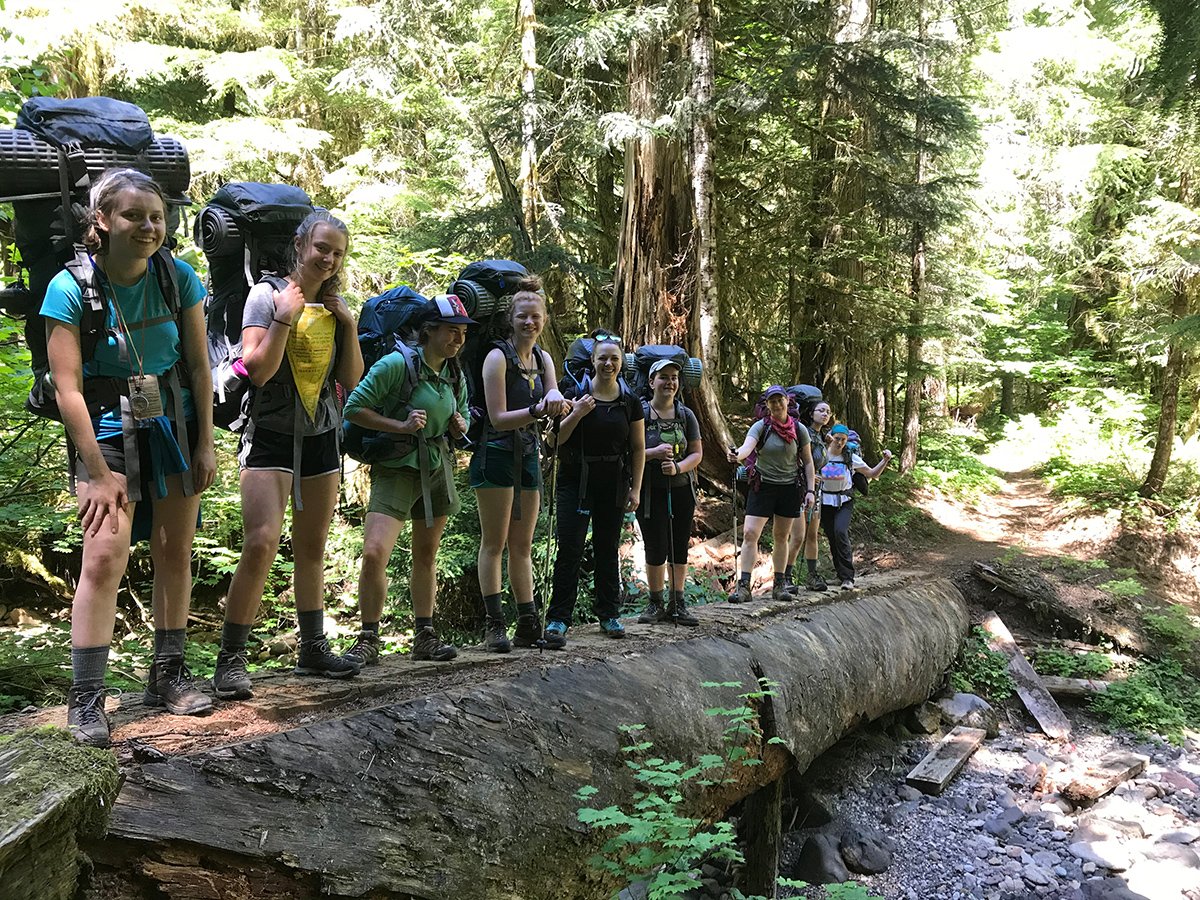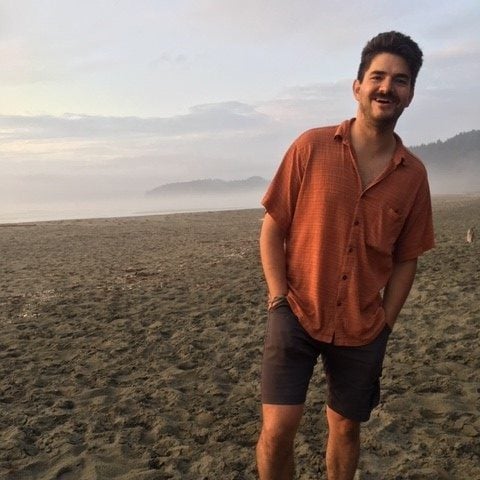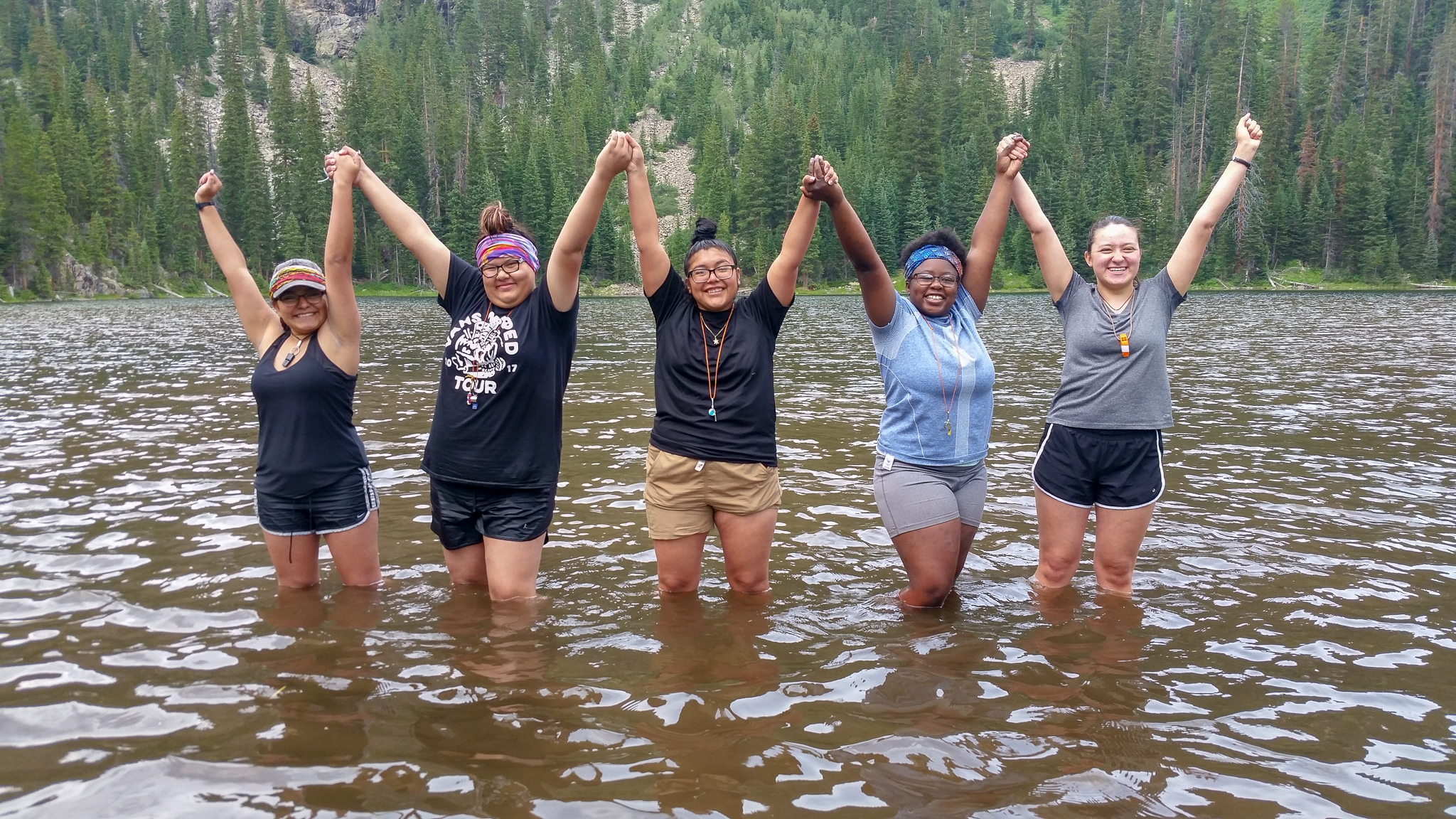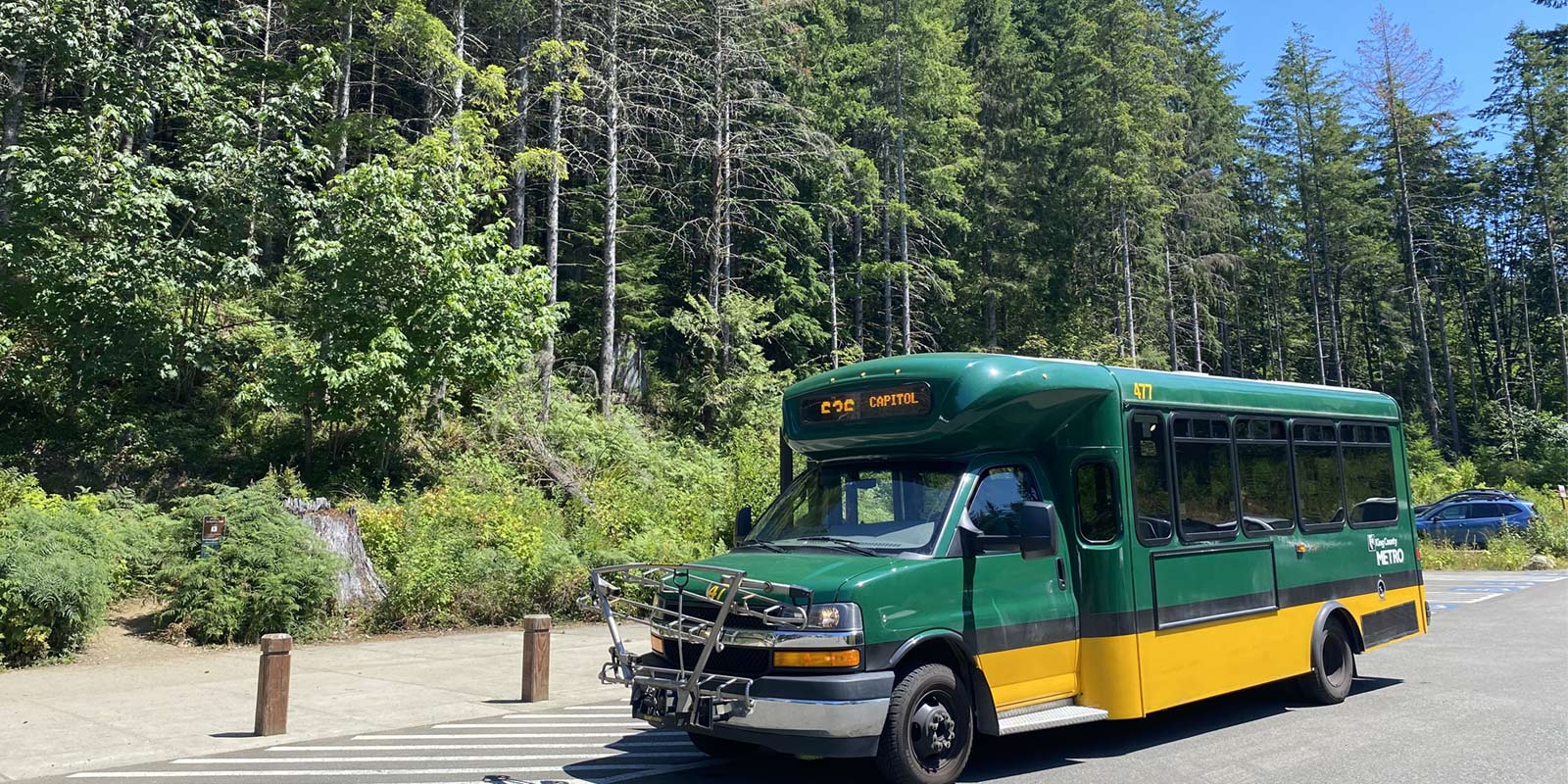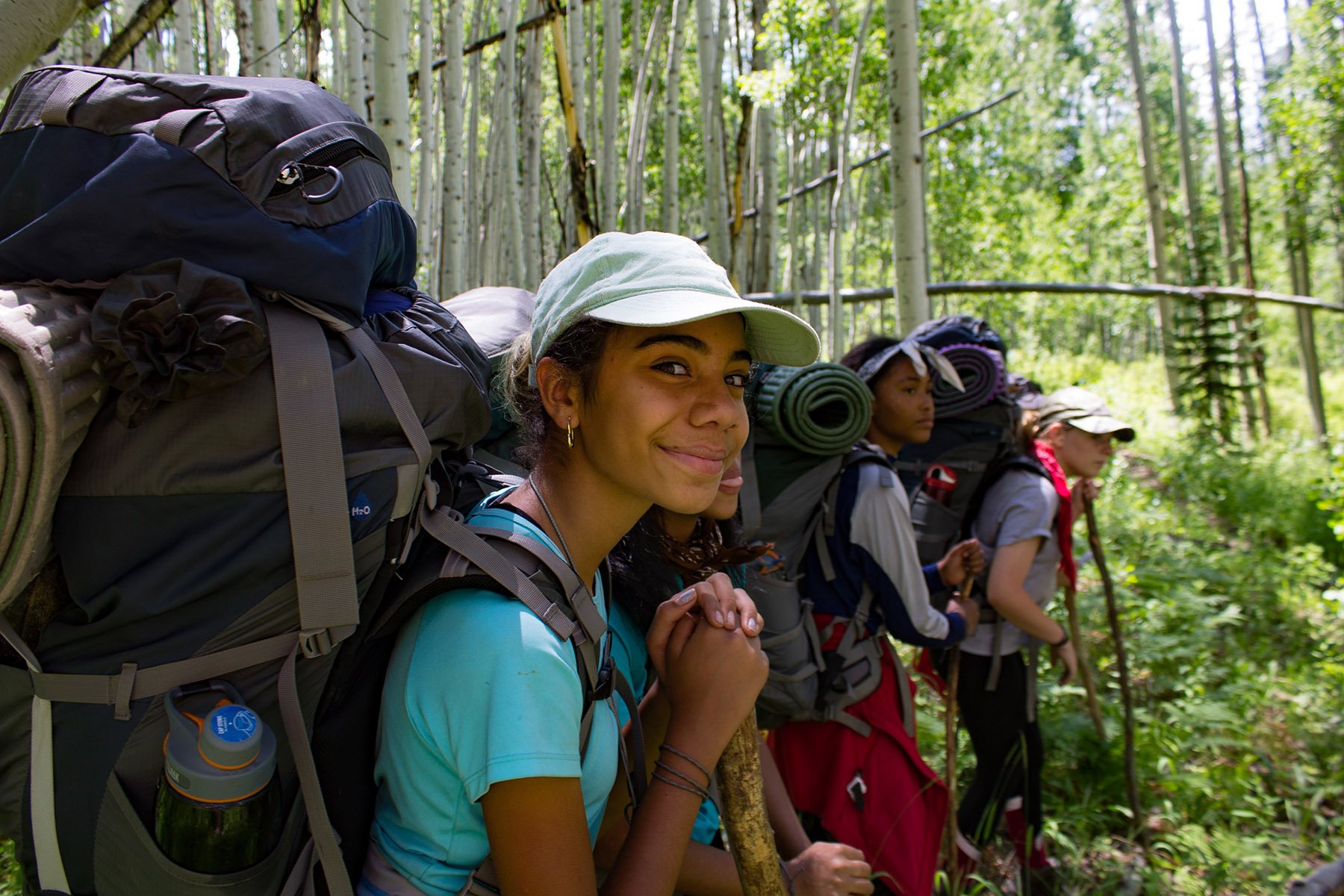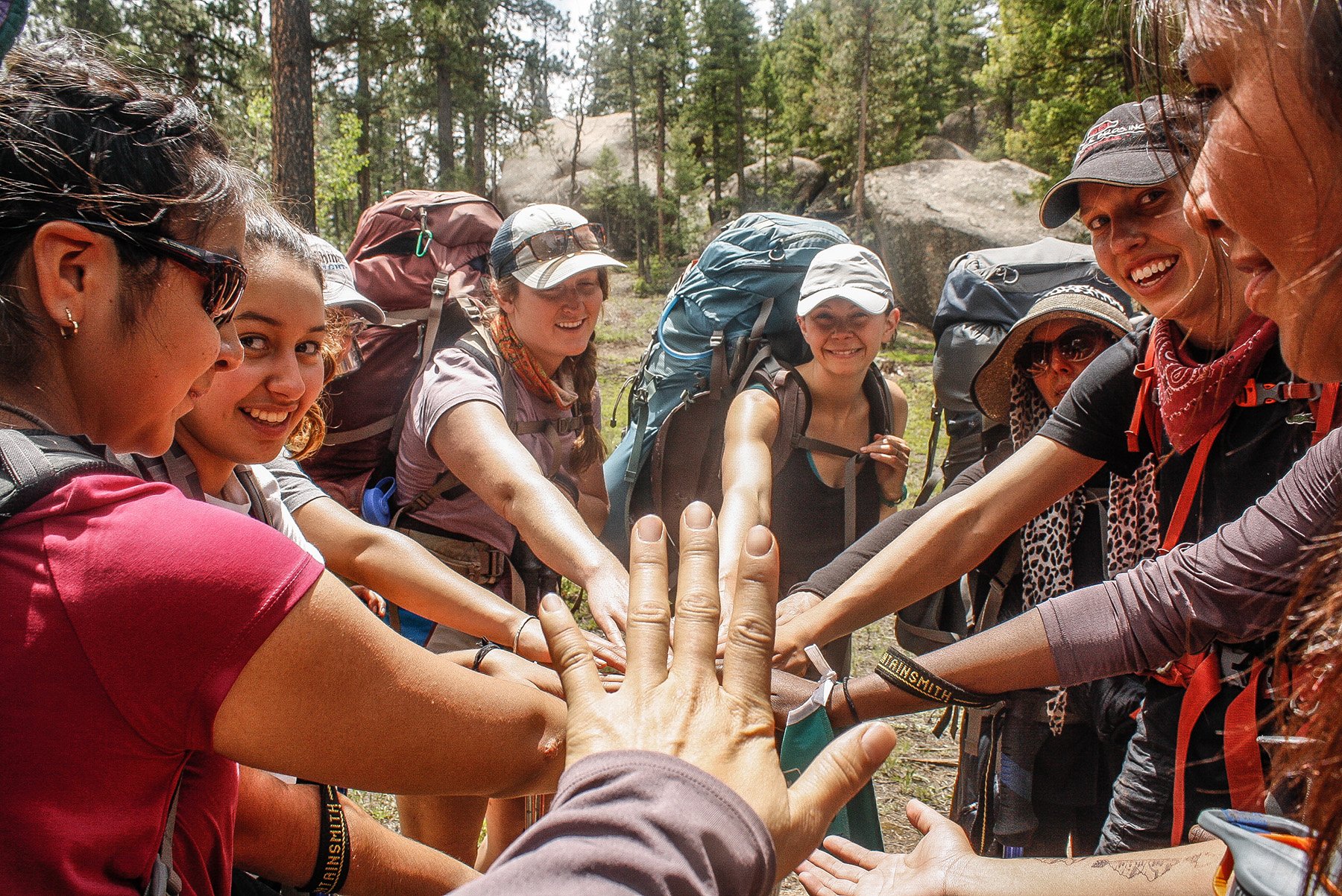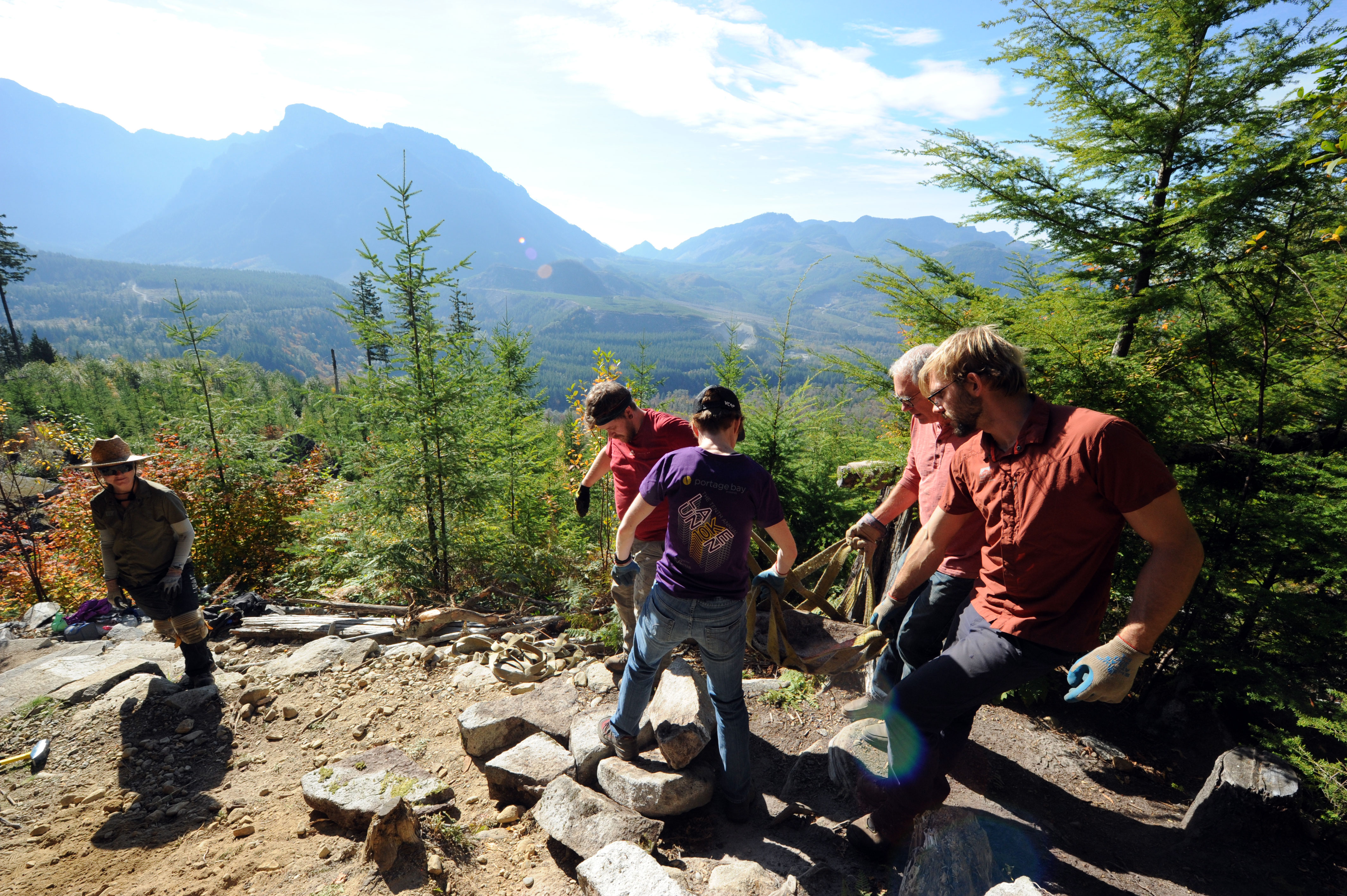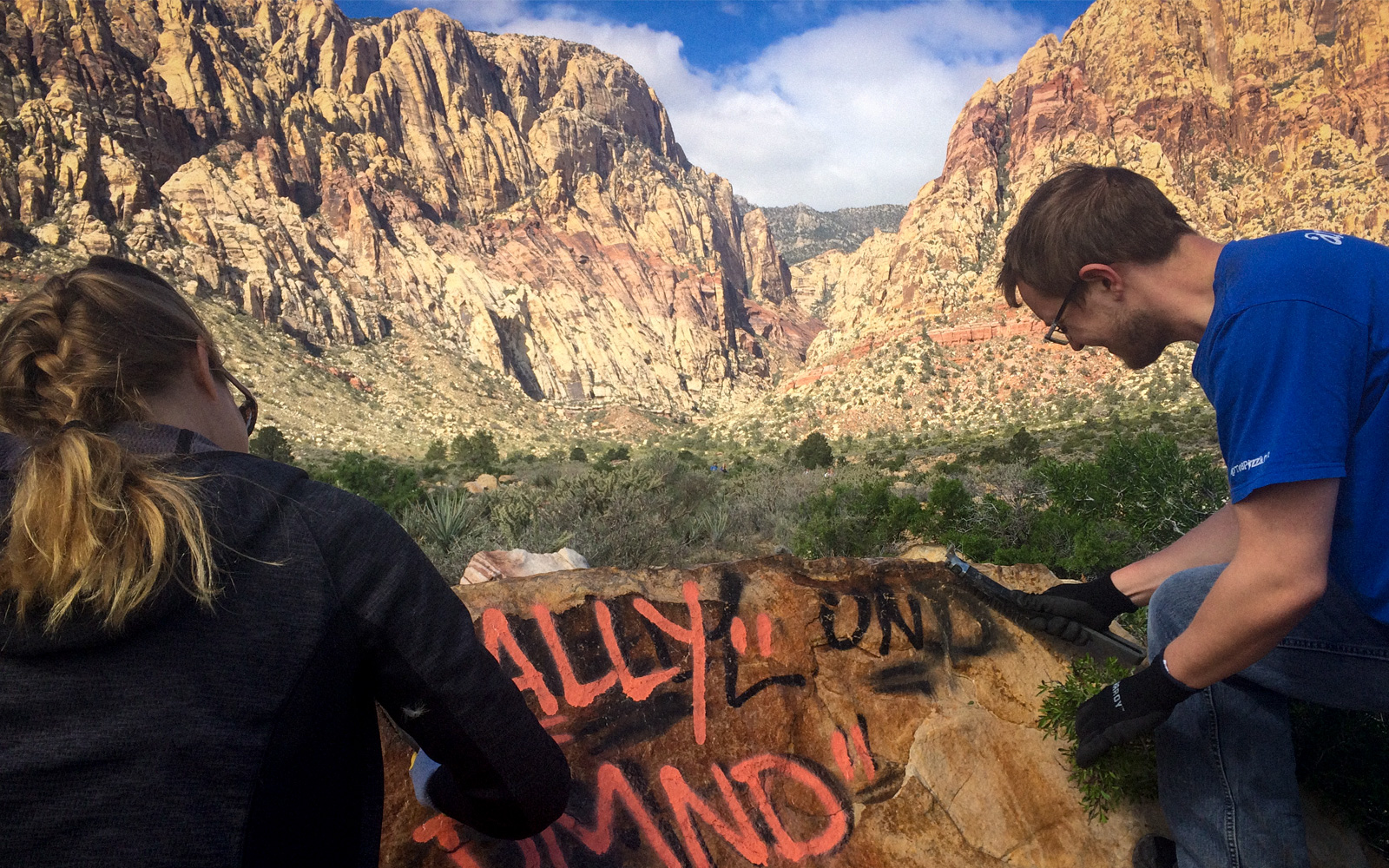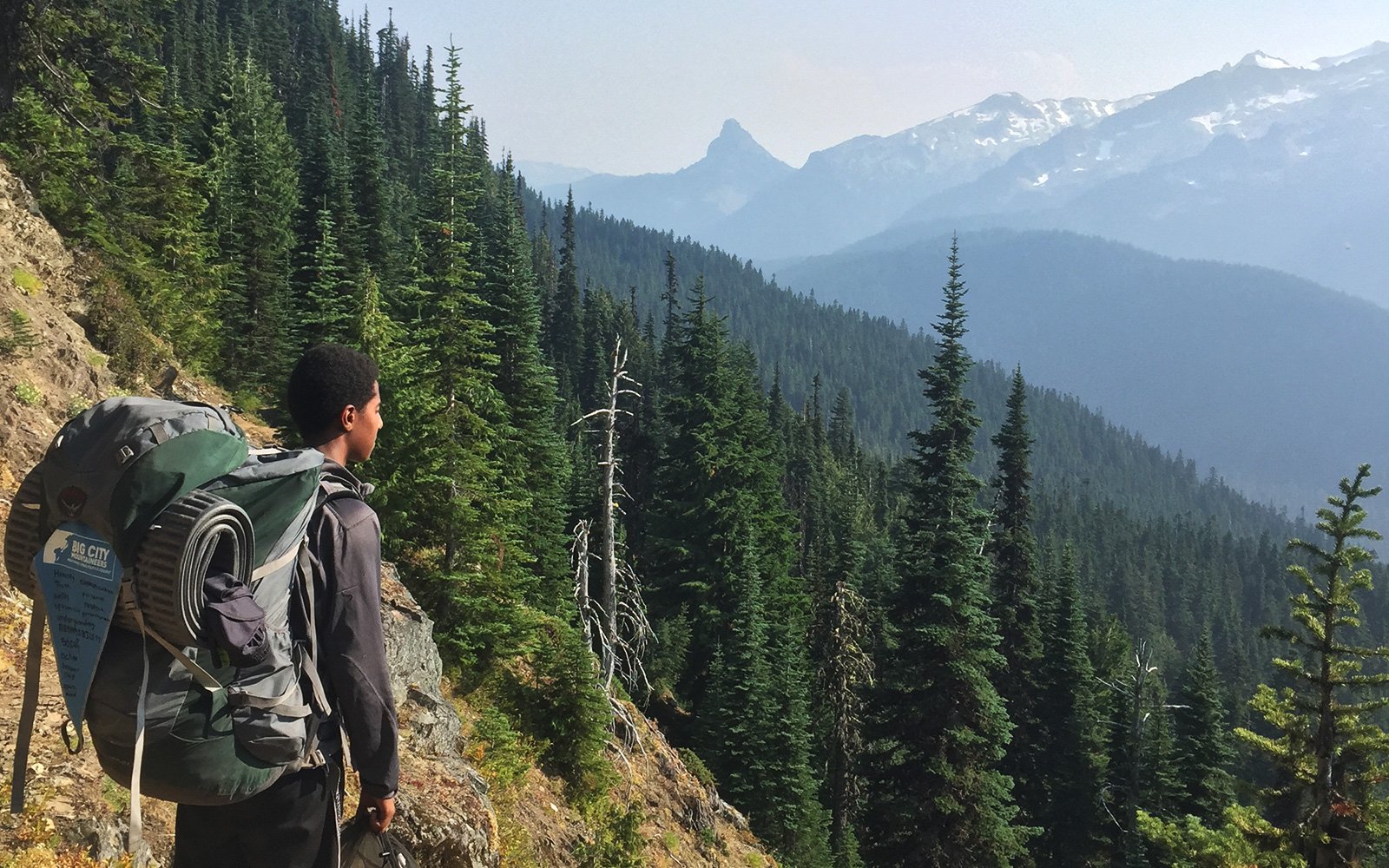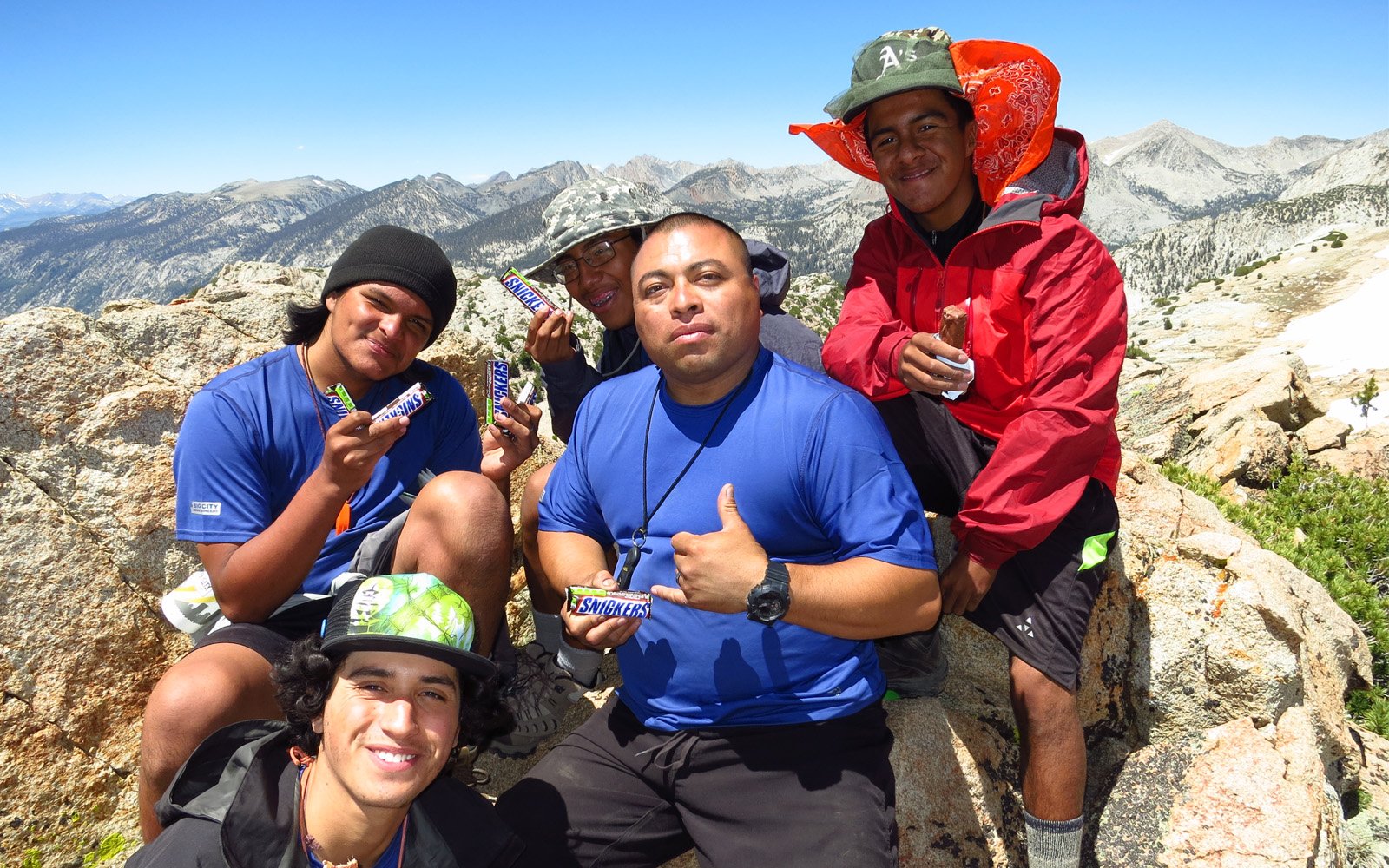With two-thirds of the world’s population living in urban settings, it is critically important that people find ways to get outdoors. Especially young people. Why? The WHO links urban living to diminished health outcomes, and calls on governments to deliver certain fundamental human needs to their citizens by providing adequate urban green spaces. Outdoor programs for youth play an important role in the health of our communities at large.
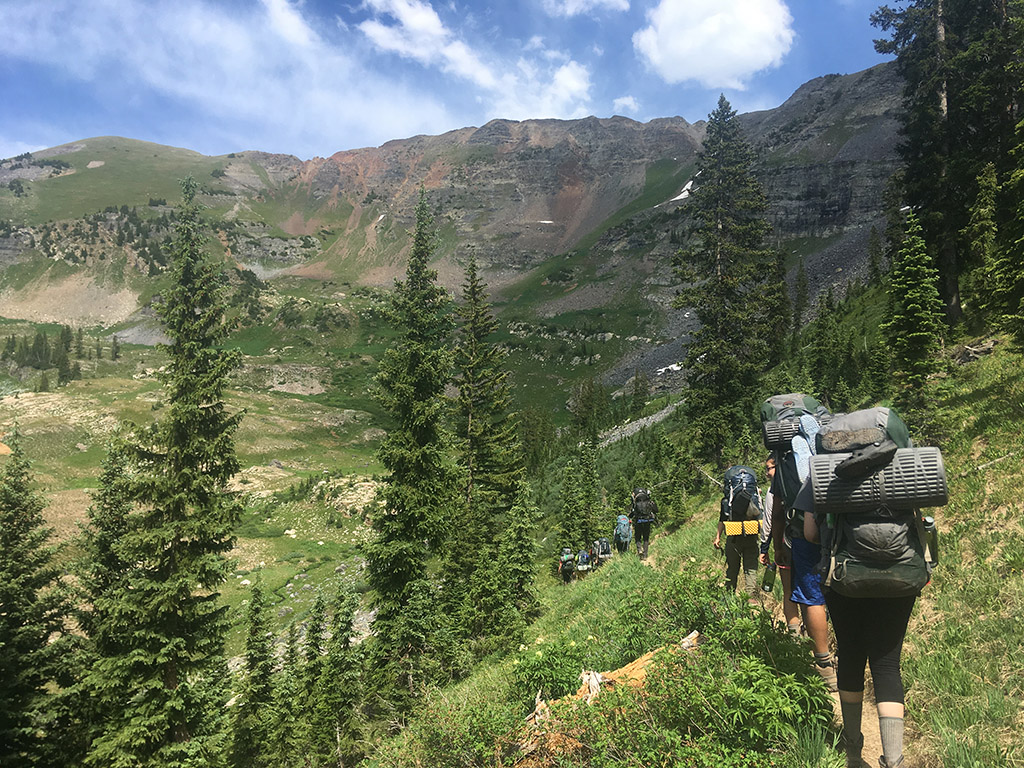
Below we discuss some ways outdoor programs enrich the lives of young people and how that can benefit all of us collectively. The formula is simple:
- Outdoor recreation makes young people stronger and more thoughtful.
- Those young people will come together to form tomorrow’s communities.
- Strong and thoughtful individuals will form strong and thoughtful communities.
3 Benefits of Outdoor Programs for Youth
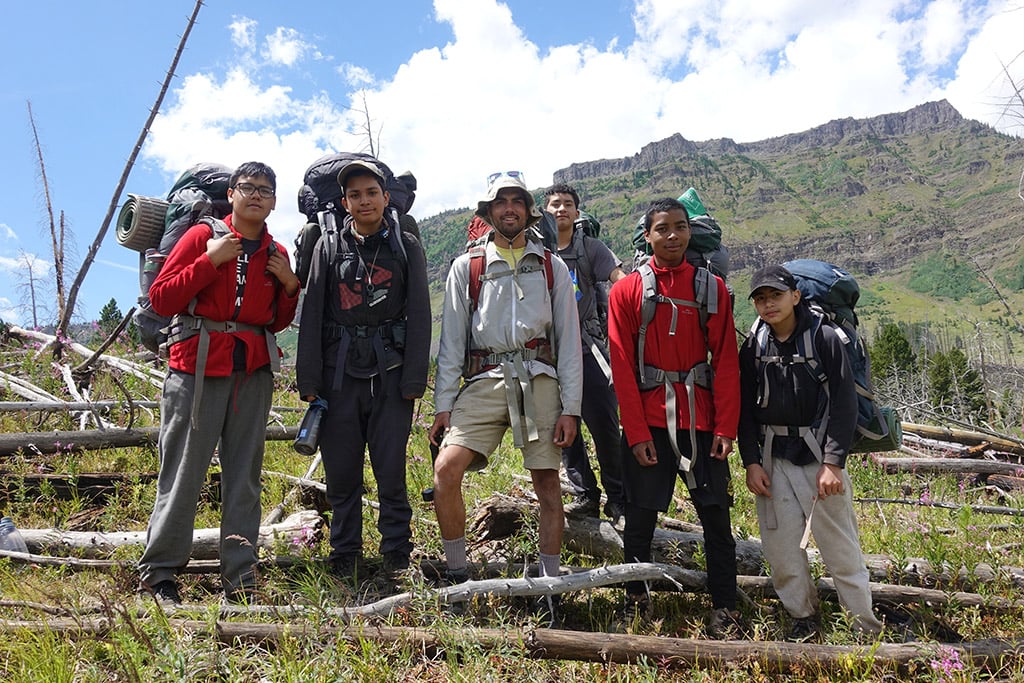
1. Self-Efficacy
Studies have shown that time spent outdoors is positively connected to key mental health and well-being outcomes, especially for children. Despite this, adults and youth alike are spending less and less time outdoors.
In his book Building for Life: Designing and Understanding the Human-Nature Connection, Stephen R. Kellert summarized Alan Ewert’s research into outdoor programs like NOLS and Outward Bound by writing, “outdoor programs can result in significant physical, psychological, social, and educational benefits that sometimes affect participants for long periods of time in their ordinary lives.” He goes on to detail these categories of benefits, and formulate the idea that these aspects of a person’s life come together to create their self-efficacy.
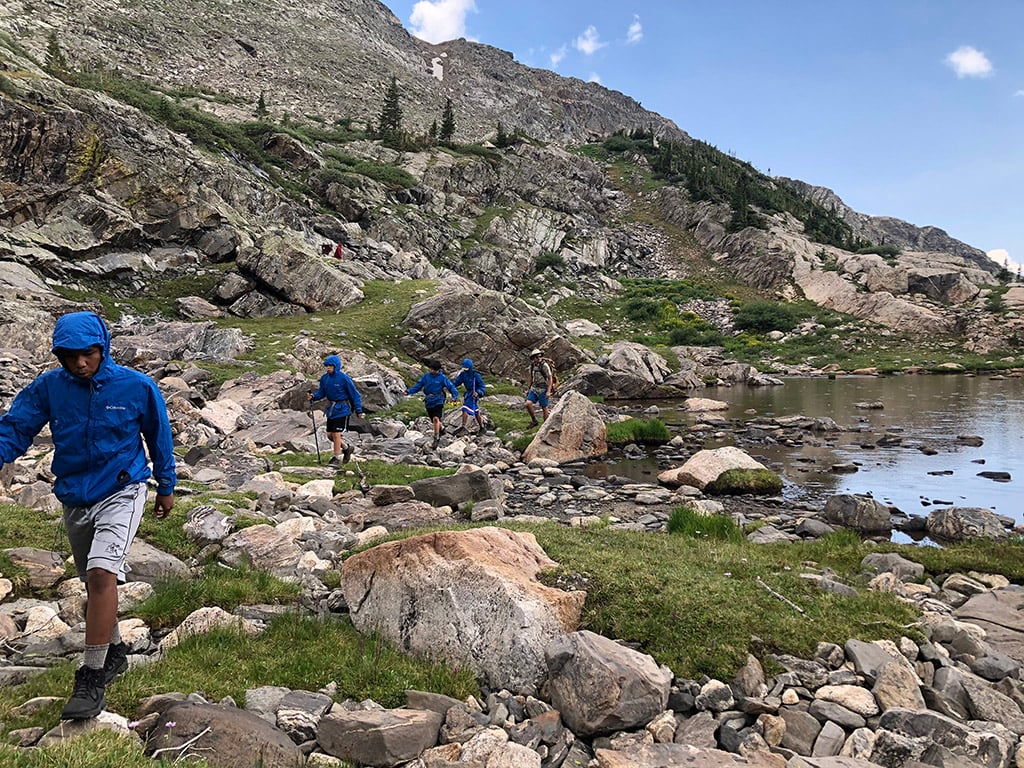
Self-efficacy is the concept of, “how well one can execute courses of action required to deal with prospective situations.” In other words, how do we respond to what life throws at us? A backcountry program can have a dramatic effect on a young person’s self-efficacy because it is a uniquely saturated life experience.
Think about how outdoor programs take students well out of their comfort zones, on an exciting adventure, and present them with a unique challenge. Overcoming the challenge requires perseverance and the development of new skills as individuals and as a group. Problem-solving, critical thinking, curiosity, self-discipline, decision-making, leadership, and the capacity to make friends are just a few of the behaviors the students engage in themselves over the course of a program.

The research supports the idea that backcountry experiences can be transformational and singularly important experiences in a young person’s journey to believe in themselves and their capabilities.
2. Physical Health
An important contributor to a young person’s self-efficacy is physical health. Outdoor recreation is one of the easiest ways to simply make their bodies move and achieve the right amount of exercise. Strong self-efficacy can be understood as a healthy mind and body and the positive influences they have on each other.
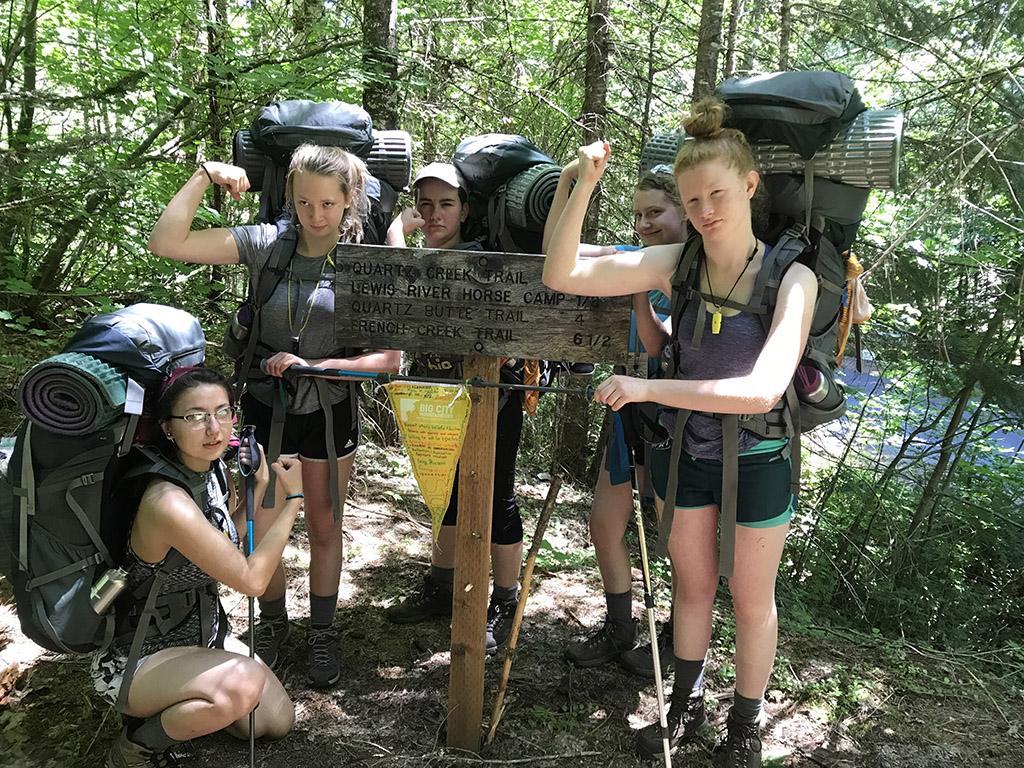
Depression amongst teens is on the rise. While depression is a complex condition, physical exercise can play a significant role in preventing and treating it. The reality is, that some of the things that depression causes adolescents to experience (e.g. social isolation, lack of self-confidence, inert motivation) are directly addressed in physically active, socially stimulating, and cognitively challenging outdoor programs.
3. Environmentalism
Another essential aspect of outdoor programs aimed at youth is about building a sustainable future. Children who grow into adulthood with an outdoor lifestyle are more likely to develop lifelong environmentalist attitudes. They will feel the essential value the outdoors has created in their life and recognize that a healthy connection between nature and civilization is crucial.
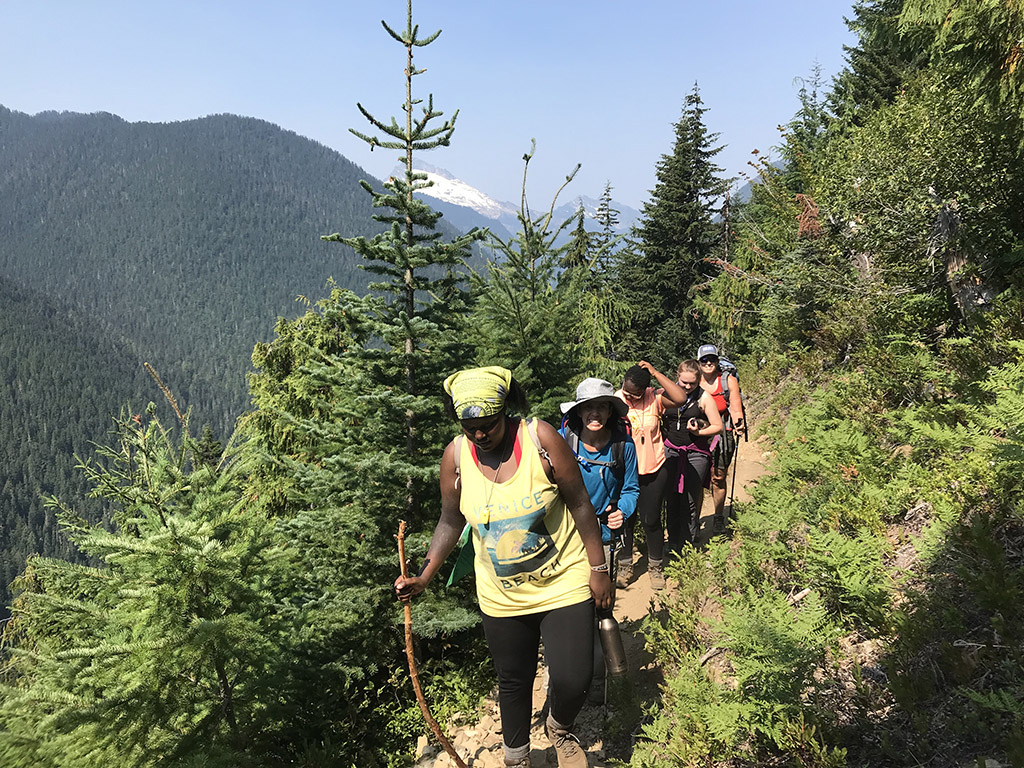
With less exposure to nature, environmentalism is at risk of not mattering as much to young people. Outdoor programs can bolster young people’s political agency by building their self-efficacy and adding environmental activism to their agendas.
Final Thoughts
People deserve a connection with nature because it is a fundamental human need. Camping, backpacking, or any way that we are able to be outside gives us a chance to be the best and healthiest versions of ourselves. That is why outdoor programs for youth matter because young people are our future. To overcome challenges the future holds in store, we will need them at their best.
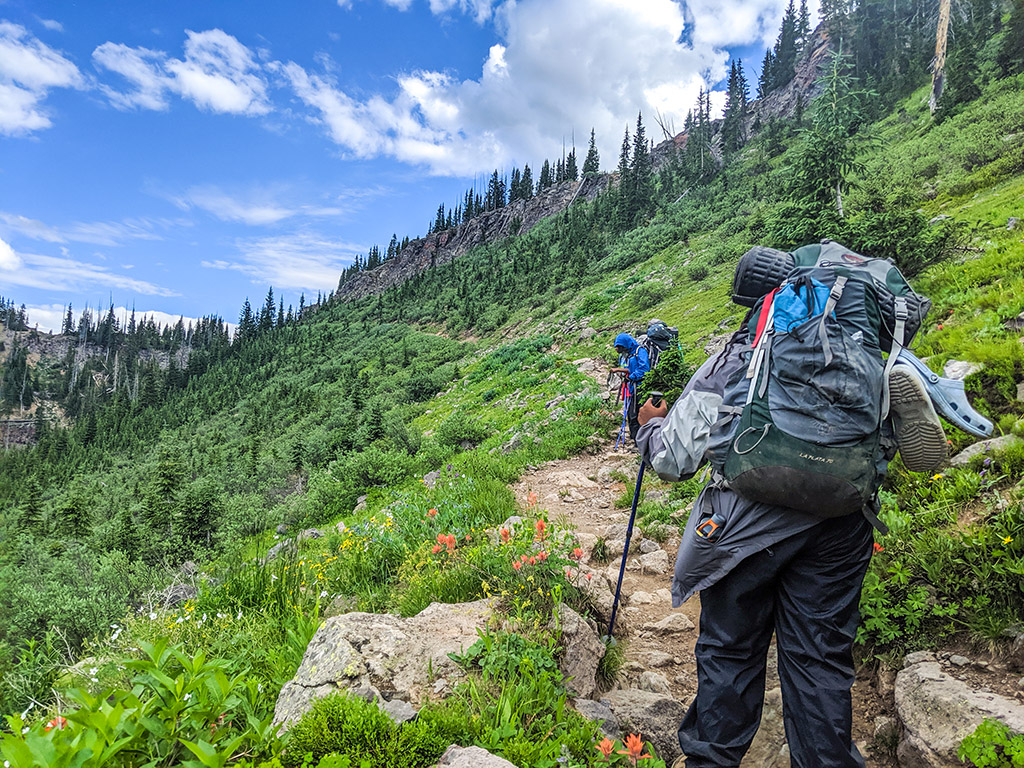
Originally published Oct 20, 2020.
